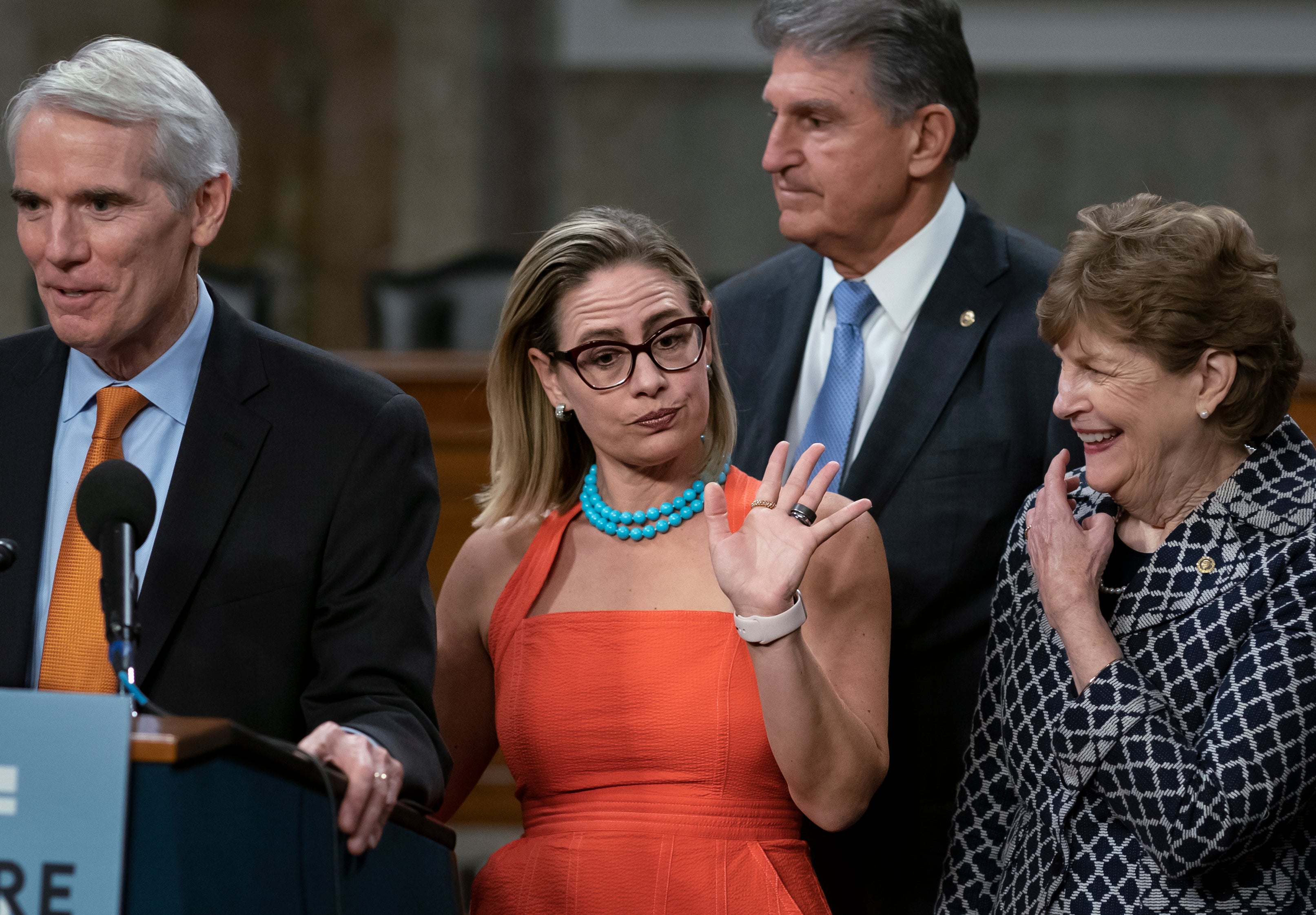Pelosi confirms Schumer promised to change Senate’s filibuster rule if Democrats win in November
Pelosi says Senate ‘will change’ filibuster rule to allow voting rights legislation to pass under a Harris presidency
Your support helps us to tell the story
From reproductive rights to climate change to Big Tech, The Independent is on the ground when the story is developing. Whether it's investigating the financials of Elon Musk's pro-Trump PAC or producing our latest documentary, 'The A Word', which shines a light on the American women fighting for reproductive rights, we know how important it is to parse out the facts from the messaging.
At such a critical moment in US history, we need reporters on the ground. Your donation allows us to keep sending journalists to speak to both sides of the story.
The Independent is trusted by Americans across the entire political spectrum. And unlike many other quality news outlets, we choose not to lock Americans out of our reporting and analysis with paywalls. We believe quality journalism should be available to everyone, paid for by those who can afford it.
Your support makes all the difference.Nancy Pelosi says in a new interview that her party will take on the Senate’s filibuster rule in some fashion if a Democratic majority returns to the chamber next year.
The California representative and Speaker Emerita spoke to Rolling Stone for a new interview in which she said that Senate Majority Leader Chuck Schumer, who is expected to continue leading the Democratic Senate caucus come 2025, vowed to her that he would get his party’s landmark piece of voting rights legislation — the For The People Act — past the Senate’s 60-vote filibuster threshold if Democrats win a majority in the chamber this November.
“We have to win the Senate. [Schumer] told me that if they win, they will change the Senate in terms of the filibuster, and we would pass [the] For The People Act, which makes all the difference in the world in terms of our democracy,” the former House speaker said.
Technically, her party already has that majority. But two members of the Senate Democratic caucus, Kyrsten Sinema and Joe Manchin, have voiced opposition to changing or removing the filibuster standard and have prevented their party from doing so under nearly four years of Joe Biden’s presidency, stymieing some of the president’s main policy goals.

Both Sinema and Manchin are set to leave the chamber at the end of the year, however. Both are departing the Senate rather than fight out tough battles for re-election.
Sinema in particular was set to run as an independent after she left the Democratic Party, before it became clear she was in line to face a serious primary opponent. She then dropped out of the race entirely when polling indicated she was firmly in third place behind both her Democratic and Republican challengers.
Should Democrats return to the majority in the Senate next year, the party will do so with both of the two biggest opponents to changing or ending the filibuster rule expunged from their caucus. Whether they can manage to win that majority is another story — Schumer’s caucus faces a tough road ahead to maintaining control of the chamber, thanks to competitive Republican Senate candidates in Maryland and Montana, as well as the near-guarantee that Manchin’s seat will be taken by a Republican.

If they do so, the next question will be whether their party changes the filibuster or gets rid of it entirely. Under the Biden administration, Democrats talked openly about enacting a carve-out within the filibuster rule to allow bills specifically dealing with the issue of voting rights to bypass the 60-vote threshold, but even that concession was rejected by Manchin and Sinema.
Whether Republicans would consider nuking the filibuster under a GOP president is also unclear. Senate Minority Leader Mitch McConnell, who is stepping down as leader of the Republican caucus at the end of his current term, is a major opponent of doing so and promised unprecedented gridlock in the chamber if Democrats follow through on their plans to change the rules.
Under McConnell’s previous tenure as Majority Leader when Republicans controlled the chamber under Donald Trump, he changed Senate rules to allow the consideration of Supreme Court nominees and Cabinet appointees to bypass the 60-vote threshold. Democrats, led by Harry Reid, lowered the same threshold for federal judges years earlier.
If passed, the Democrats’ voting rights regulation would put in place national standards for polling places and would estabish independent commissions to determining congressional redistricting practices, ending the process of partisan gerrymandering. It would also require a code of conduct for Supreme Court justices, require presidential candidates to disclose their tax returns, and take other measures aimed at expanding voting access and transparency within US elections systems.

Join our commenting forum
Join thought-provoking conversations, follow other Independent readers and see their replies
Comments